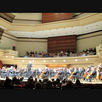Traditions stay alive in the celebration of the Russian holiday Maslenitsa
- Feb 19, 2018
- 4 min read

A beautiful celebration of Maslenitsa, one of the most favorite Russian holidays, took place on February 18 in Rolling Meadows.
“I believe in traditions; I believe in the idea of things being passed between generations and the slow transmission of cultural values through tradition,” said American Oscar-winning writer Graham Moore, who is a native of Chicago. People of different nationalities and races relate to his words, including Russian-speaking people who consider Chicago to be their home but still remember their heritage and pass their national traditions to their children. A beautiful celebration of Maslenitsa, one of the most favorite Russian holidays, took place on February 18 at Fairy Castle Entertainment in Rolling Meadows.
So, what is Maslenitsa? Being an old Eastern Slavic folk holiday, Maslenitsa has dual roots – pagan and Christian. As a pagan celebration, Maslenitsa means saying goodbye to winter and welcoming spring. As a Christian holiday, it is celebrated a week before the start of Russian Orthodox Lent, when the fasting that precedes Easter begins and when all the festivities, music and dances become strictly prohibited. Either way, Maslenitsa is a holiday that brings joy to the human heart along with hope and happiness. A big part of celebrating Maslenitsa is making and eating delicious Russian crepes, or blini, that can be served with butter, caviar, jam, and sour cream.
The name of the holiday Maslenitsa is coming from the Russian word “maslo,” which means butter or oil in Russian. It is used for cooking and, of course, for serving Russian crepes, which are essential to the celebration of Maslenitsa. Golden round hot crepes represent the sun, and along with other national traditions such as dancing khorovod (Russian round dance), singing songs and playing games are meant to “butter up” the sun and make warm spring days come faster.

Of course, such a beautiful holiday is greatly missed by Russians residing in America who want to keep their national traditions alive. Therefore, Russians from the Chicago area greatly appreciated finding out that such a celebration was going to be organized in one of the Chicago suburbs and happily attended it.
“It is only the second Russian event that I have organized since the inception of my company,” said the owner of Fairy Castle Entertainment, Janna Mehanovic. “I really love my job and specialize in doing birthday parties and theme-oriented events. We are a multinational company that serves customers with a variety of national backgrounds. We do have a lot of Russian customers who have been coming to our events for years and who have been asking me to organize parties in the Russian language for the Russian community of Chicago. Russian people like Maslenitsa a lot, plus there are not many companies in the Chicago area that celebrate Maslenitsa, so I decided to organize this party. I wanted to make children happy, and I wanted to create a Russian environment. I hope, I succeeded and our customers are happy!”
Friendly and extremely professional actors, bright costumes, beautiful Russian songs, nice decorations, an intriguing show with Winter and Spring as main characters, fun games and of course delicious Russian crepes and other traditional dishes waited for those who chose to celebrate Maslenitsa with Fairy Castle Entertainment. Even those who didn’t know each other in the beginning of the event were happily celebrating Maslenitsa together at the end.
“It was my first time coming to celebrate Maslenitsa with this company,” said Daniel, a nine-year-old. “I have been to other Maslenitsa events before, but they were not as fun as this one. I liked that everyone was involved in the games and activities and nobody felt excluded. I loved the food, especially, the Russian crepes, which I know are the symbol of Maslenitsa. I also think that the actors did a good job. They were very entertaining! Thank you to the organizers for making such a great holiday!”
“My family and my friends came here because it is a great place for kids and for adults, and also because Maslenitsa is one of our most favorite Russian holidays,” said Natasha, mother of a three year old. “This celebration brings warm memories from our childhood, and we hope to transfer these memories and traditions to our children. We also want them to experience the magic of a fairy tale that this holiday creates!”

“I like this party! It is great for children. I like all the games and the activities,” said one of the mothers who introduced herself as Inga. “I am from Moldova, which is part of the former Soviet Union, so we have mutual traditions. My family tries to attend anything that is related to Russian culture and heritage, and this celebration is great!”
“It was our first time having Maslenitsa with this company,” noted Elena, a mother of a little girl. “Before that my daughter was too young, and now I could introduce to her our Russian traditions. We liked the buffet, the characters, the games, and of course the Russian crepes. Before this year, we were celebrating Maslenitsa at home, just our family. It is good that we met here people who speak Russian. It is also good for our children to keep the language, the culture and the traditions.”
This celebration evoked simple, yet very important thoughts. The more we stay connected to our roots and the more we introduce our heritage to our children, the more their lives will be full and satisfying. It refers to every nationality and every person, and America, as a country built by immigrants and for immigrants, is a great example of loyalty, friendship and unity between people who came here from all over the globe. We all chose this country to be our home, and we all contribute to making it warmer, brighter and kinder.
As Italian journalist and pacifist Ernesto Teodoro Moneta noted, “The more each nation contributes to world society from the wealth of its own aptitudes, its own race, and its own traditions, the greater the future development and happiness of mankind will be.” This Maslenitsa celebration in a quiet Chicago suburb became another little gem in the colorful palette of cultures, traditions and customs that are so necessary to make this world a better place.
Natalia Dagenhart

























Comments